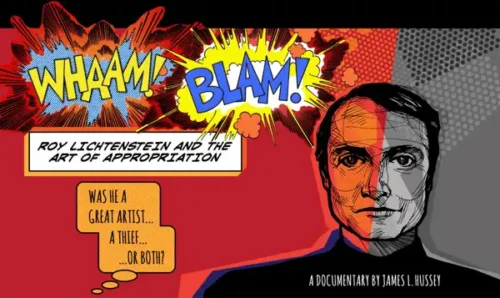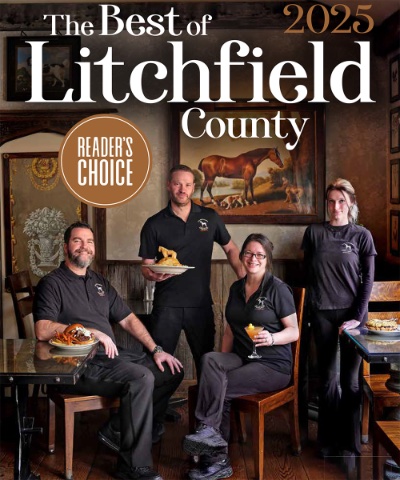
Great Artist or Thief?
Was Roy Lichtenstein a great artist, a thief, or both? That is the question addressed by director James L. Hussey’s documentary film, WHAAM!BLAM!–Roy Lichtenstein and the Art of Appropriation, winner of the Best Documentary award at London’s Crystal Palace International Film Festival in 2023.
You can see this provocative film and afterwards hear the film’s creators in a panel discussion for free at the Cornwall Library on Saturday, January 20 at 4 pm. Seats are limited and registration on the library website (https://cornwalllibrary.org/events/) is required.
Along with Andy Warhol, Lichtenstein created the Pop Art movement of the 1960s. His comic-based paintings, such as Whaam!, reside in the greatest museums and sell for millions. But some view this renowned artist as a plagiarist. The dispute over whether Lichtenstein was effectively stealing the work of highly talented cartoonists has been going on since the 1960s. The WHAAM!BLAM! documentary focuses on the comic artists whose work was “appropriated” by Lichtenstein, and they are not happy.
For example, Lichtenstein’s Whaam! painting borrows from 1962 work by artists Russ Heath and Irv Novick for DC Comics. Before his death in 2018, Heath said “What’s so terrific about copying someone else’s work? … I just think it’s something you don’t do — steal other people’s work — no matter what kind of business it is. Invent your own thing and run with that ball. Don’t run with mine.”
Lichtenstein defended himself by claiming that he was transforming the source work in a fundamental way. In a 1983 biography he is quoted as saying: “I am nominally copying, but I am really restating the copied thing in other terms. In doing that, the original acquires a totally different texture.”
WHAAM!BLAM! is evenhanded. The Artnet News website quotes Hussey:
“I knew that Lichtenstein was an appropriative artist, but after reviewing [the] research, I was surprised about how closely many of Lichtenstein’s paintings followed the original sources… From my interactions, I’m convinced that many, if not most, fans of his work believe he is simply appropriating the comic style, not an actual image produced by another artist. [My documentary] isn’t meant as an exposé to “cancel” Lichtenstein, but rather, to “stimulate debate” as it tackles the ethical, legal, and very human implications of artistic appropriation. The film recognizes appropriation as an essential gesture in art, giving due credit to Lichtenstein’s conceptual intent and his Pop legacy.”
The screening will be followed by a discussion with Hussey, editor and co-producer Tory Estern Jadow, and David Barsalou, the visual artist/art historian who spent years tracking down the original comic sources for Lichtenstein’s work and bought a second house to store his many comic books.
The Cornwall Library
30 Pine Street
Cornwall, CT 06753





















